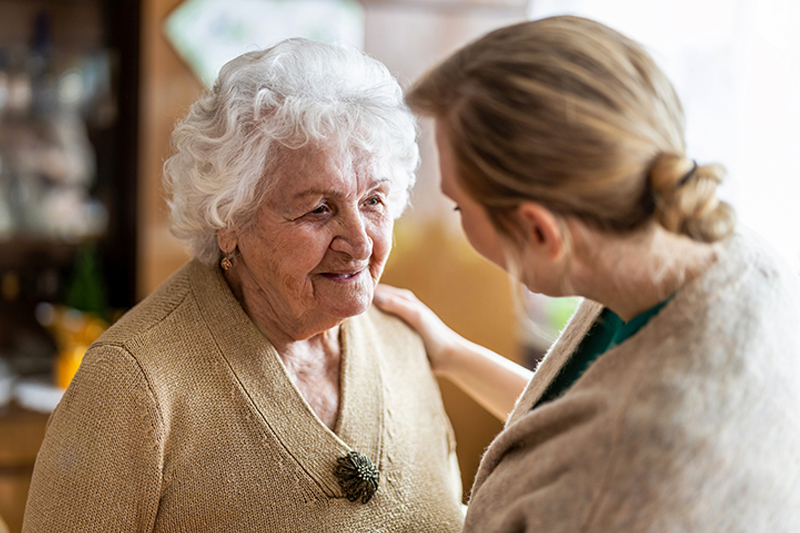
Learn how home care helps with chronic pain management.
Aching. Burning. Stinging. That’s how many seniors with chronic pain explain how they feel every day. Chronic pain can occur anywhere in the body, in some cases for no clear reason whatsoever. It is characterized by pain that lasts for more than three months, either continuous or coming and going. And it is more widespread than you might imagine, impacting one in four of us in the United States.
Obviously, such perpetual pain can dramatically influence on a person’s wellbeing. Not only does it impact the ability to perform everyday physical activities and responsibilities, it also creates psychological strain, commonly resulting in anxiety, fatigue, mood swings, depression, insomnia, and more.
Medical Treatment for Older Adults with Chronic Pain
A number of factors go into the determination of how to best support a senior with chronic pain, including the presumed or established cause of the pain, how significant the pain is, where in the body it happens, and age/overall health. There are a number of medication-based treatments to alleviate pain, including treatment for any emotional effects being experienced.
Furthermore, the physician may choose to try a nerve block, epidural steroid injection, or transcutaneous electrical nerve stimulation, which involves small electric impulses delivered through skin patches.
There can be uncomfortable side effects from these forms of treatments, and a few are quite serious, so the doctor will need to carefully examine what works best for the senior.
Lifestyle Changes for Older Adults with Chronic Pain
In many cases, lifestyle changes are an effective starting place for seniors, as these can be implemented right away without any negative effects. Several suggestions from our experts in home care in Lenexa, KS include:
- Dietary changes. Particular foods are known to cause inflammation, which may exacerbate pain. An anti-inflammatory diet that eliminates refined carbs and red meat may be recommended by the doctor or a nutritionist.
- Stress reduction. Heightened stress levels can have a substantial impact on chronic pain. There are many ways to decrease stress that can help, including deep breathing, meditation or prayer, taking a warm, relaxing bath, reading, or listening to calming music.
- Exercise. Though it may seem tough to think of working out while in pain, low-intensity workouts are in fact worthwhile, and can also help with reducing stress. Ask the doctor for specific suggestions.
- Rest. Adequate sleep is key to overall health and wellness. Additionally, there is a link between sleep deficiency and weight gain, something that can further intensify chronic pain. Let the health care provider know if insomnia is an issue so that they can provide assistance with safe techniques to improve sleep habits.
Home Care Helps Older Adults with Chronic Pain
Let the senior care team at Hearts at Home In-Home Care, a provider of home care in Lenexa, KS and the surrounding communities, help a senior you love better navigate life with chronic pain. Our home care helps improve quality of life, through the following services:
- Companionship – having someone to talk to and engage in enjoyable activities with is a great mood-booster
- Motivation to engage in advised exercise programs
- Healthy meals
- Assistance with housework and laundry
- Medication reminders
- Transportation to medical appointments and any place else a senior would like to go
- Plus much more
Contact us any time at 913-440-4209 and let us know about the challenges you are facing so that we can offer a solution to overcome them.
